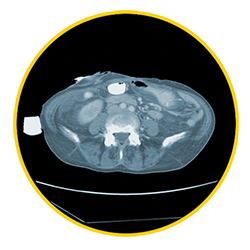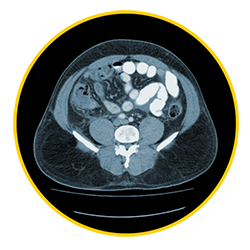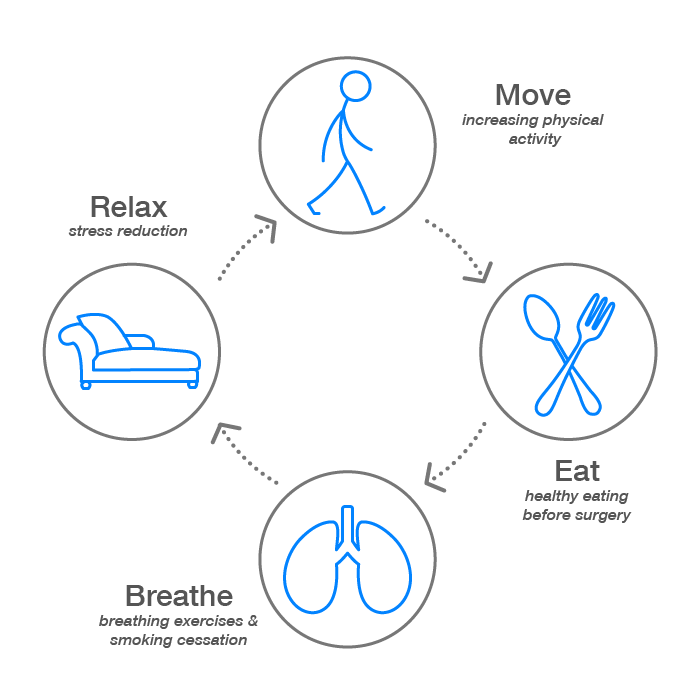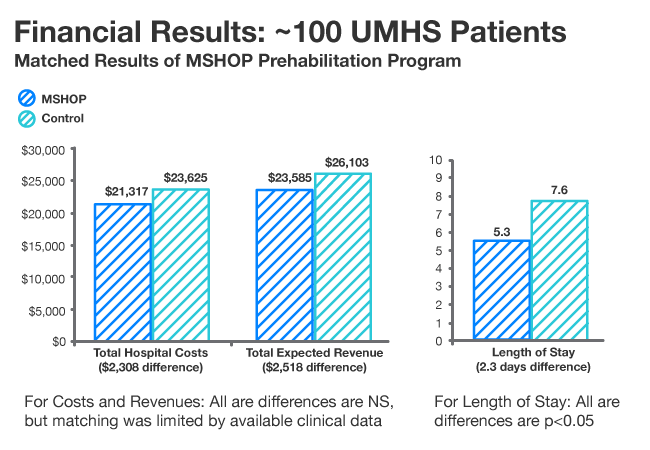MSHOP
Michigan Surgical & Health Optimization Program
While not yet a universally embraced concept, prehabilitation activities aim to strengthen and enhance a patient's ability to endure surgery, while also assisting in recovery, thereby lessening length of hospital stay and ultimately reducing costs.
Which patient will weather surgery better?
(choose one)

patient a

patient b
No, the patient on the right will have a better outcome.
The patient on the right has a higher Body Mass Index but has larger and higher quality core muscles. The patient on the left, while thinner, is lacking muscle and thus physical reserve to withstand the insult of surgery.
Correct! The patient on the right will have a better outcome.
The patient on the right has a higher Body Mass Index but has larger and higher quality core muscles. The patient on the left, while thinner, is lacking muscle and thus physical reserve to withstand the insult of surgery.

MSHOP & Morphomic Analysis
By using CT scans to take quantitative measurements of the human body, researchers are able to better predict surgical outcomes. The ultimate goal of this research is to compare these measurements to how well patients perform while undergoing different procedures.
While the MSHOP program is focused on delivering a prehabilitation program augmented by cutting-edge technology, under the demonstration grant, Morphomics Analysis will be piloted in the Risk Assessment Tool on a limited set of patients.
How we train patients for surgery
MSHOP was developed at the University of Michigan to help patients prepare for surgery by understanding their risks through Morphomic Analysis and engaging them in an intervention program.
We prepare them for surgery by focusing on four areas of improvement: Movement, Eating, Breathing, and Relaxation.
This increases the liklihood that the patient will do better after surgery, improving their quality of life.


Does it work?
After a successful MSHOP pilot at the University of Michigan Health System, outcomes analysis indicated that there were reductions in both costs and lengths of stay in the MSHOP group versus the control group.
Stewart C. Wang, M.D. Ph.D.
Call
(734) 764-7841
© 1995-2019 Regents of the University of Michigan
